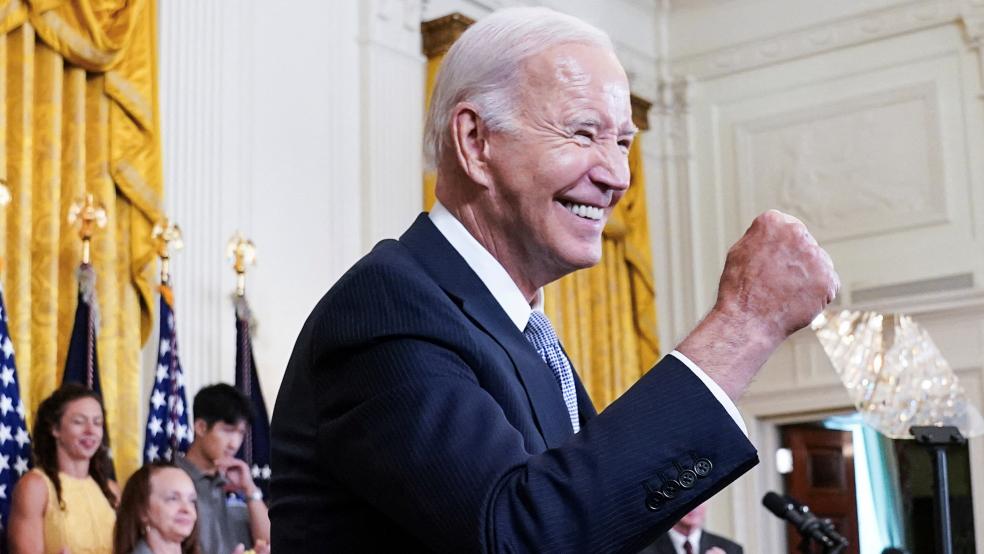President Joe Biden will deliver his State of the Union address to Congress this evening, and some political analysts are calling it the most important moment in his decades-long political career.
With just eight months to go before the election in November, Biden will make his case for another term, highlighting the country’s strong economic performance over the last few years, as well as his efforts to reduce drug and energy costs, while laying out his plan for the next four years. He will contrast his record and his vision for the future with the “MAGA agenda” of presumptive Republican presidential nominee Donald Trump, with that agenda defined as tax cuts for the rich, restrictions on political rights and the undermining of democracy.
In previewing the speech for reporters, the White House said Biden will lean into fiscal issues, including tax cuts for the middle class, tax increases for the wealthy, further investment in infrastructure and a plan to reduce the budget deficit by $3 trillion over 10 years.
Here are some of the proposals highlighted by the White House that we expect to hear about tonight:
* Increase the top corporate income tax rate to 28%, partially reversing the tax cut that occurred in 2017 during the Trump administration, when the top rate was dropped from 35% to 21%.
* Raise the minimum corporate income tax rate to 21% for major companies, up from the current level of 15% as set by the Inflation Reduction Act of 2022.
* Institute a minimum income tax of 25% for the wealthiest. As part of an effort to make sure that billionaires pay tax rates similar to those paid by other Americans, Biden is proposing a minimum tax rate for the wealthiest 0.01% of households, defined as those worth more than $100 million.
* Raise the Medicare tax rate on incomes over $400,000, as part of an effort to shore up the Medicare Hospital Insurance Trust Fund.
* Eliminate the deductibility of compensation costs for all employee salaries of more than $1 million a year, expanding restrictions already in place for top corporate officers. The White House says doing so could raise about $270 billion over a decade.
* Raise the tax on stock buybacks to 4%, quadrupling the current rate of 1%, to encourage companies to invest more in growth.
* Increase the Child Tax Credit, restoring the refundable credit that was in place during the pandemic.
* Make permanent the enhanced subsidies for health insurance purchased on the exchanges created by the Affordable Care Act, which are currently scheduled to expire after 2025.
* Renew the 2017 tax cuts for those earning less than $400,000 a year, while ending them for those who earn more.




